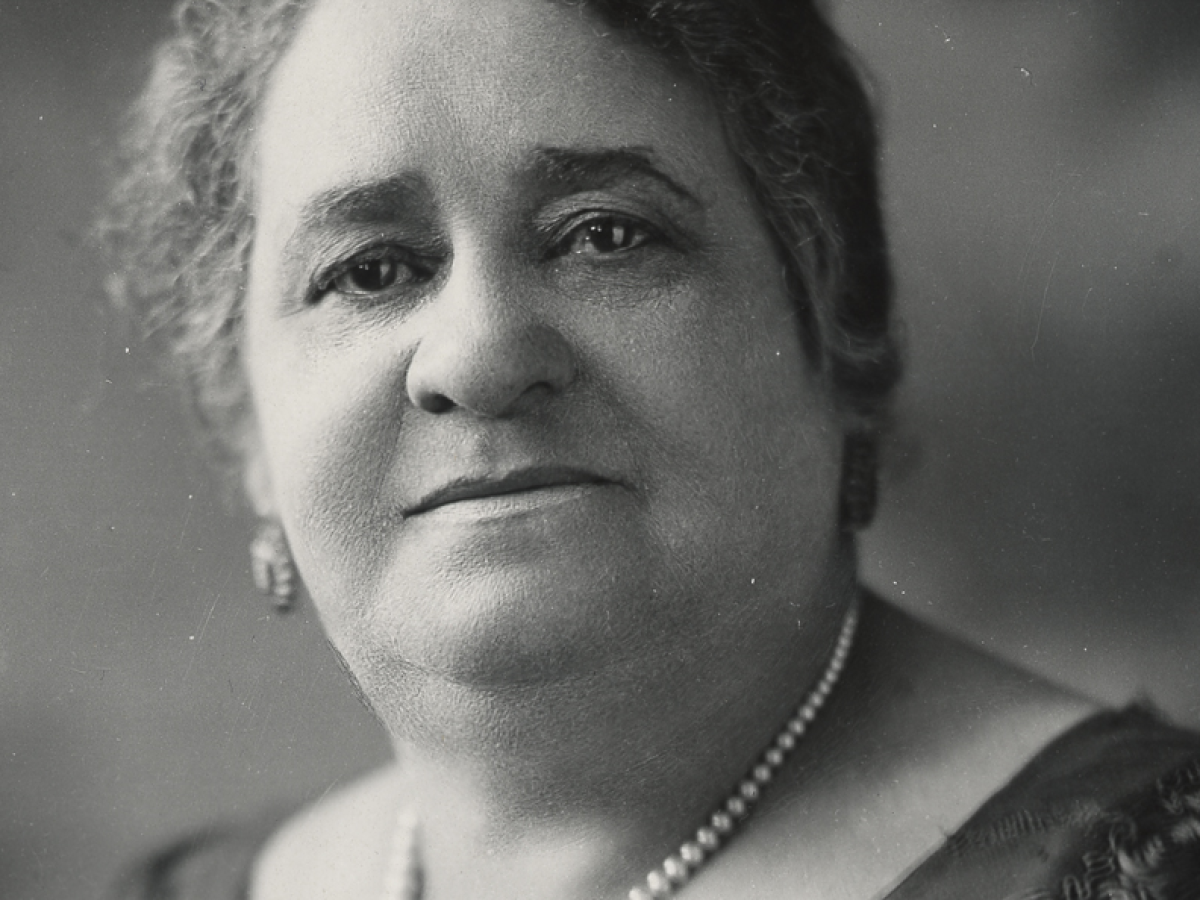
At the beginning of the twentieth century, both White women and Black people were relegated to second-class citizenship. White women in the early 1900s couldn’t vote, and opportunities for education and employment were limited. Their access to capital and influence was inextricably tied to men. In most cases, their husbands legally controlled any property or earnings inherited from their fathers. Prospects for Black people were far worse. Barely a generation emancipated, they were barred from voting and denied access to most public spaces. Violence, lynchings, and terrorism were everyday threats to Black life in the American South, making survival the hallmark of existence. It was against this grim historical backdrop that Maggie Lena Walker — both Black and woman, chartered a bank in Richmond, Virginia. Let that sink in for a moment. In the thick of Jim Crow when it was damn-near illegal for Black folks to exist, in the capital of the Confederacy, at a time when White women couldn’t open bank accounts, Walker—a Black woman, founded the St. Luke Penny Savings Bank — the first woman in the US ever to do so.
In honor of the gravity-defying trailblazer, PayPal established the Maggie Lena Walker Award recognizing Black women making significant contributions toward the economic empowerment of their communities. Launched in 2020 as part of the e-payment company’s $535 million commitment to racial equity, awards are allocated along two tiers—$50,000 for Achievement Award winners and $20,000 for Emerging Leaders. ESSENCE spoke with the current recipients about their goals for advancing community, breaking barriers, and continuing the legacy of Maggie Lena Walker.
Mandy Bowman, Founder, and CEO of Official Black Wall Street

Brooklyn native Mandy Bowman comes from a large and loving family; for her, the community has always been an extension of it. “My paternal grandmother ran a daycare center and pretty much raised the entire neighborhood,” she told ESSENCE.“So there was always someone—a neighbor, a relative, a friend or friend of the family, looking out for me.” Those values led the social entrepreneur to launch Official Black Wall Street, a national directory for Black-owned businesses. I asked the founder what she views as the most significant barrier to economic empowerment and how she hopes to address it.
A lack of funding and the wealth gap are major challenges when it comes to the economic empowerment of marginalized communities. We are essentially trying to make up for a 400-year gap where we had no choice but to stand at the starting blocks and watch our counterparts thrive and build a system that would further aid that gap. The biases and institutionalized racism we face today have made it difficult to catch up. There are many brilliant entrepreneurs in our communities that just need a fraction of the funding given to our counterparts to scale. I speak to Black founders all the time about this and the hoops they have to jump through for funding when a white male founder can raise millions in funding just from an idea (no matter how many businesses they’ve failed in the past). My biggest hope is that we can bypass our need for funding from larger institutions by supporting Black-owned businesses and providing them with the sales and revenue they need to continue scaling.
Diamond Walton, Founder at Elpida Social Capital

Racism has profoundly affected Black Americans’ social, economic, and political trajectory, and for Diamond Walton, the legacy of systemic oppression is deeply personal. “Just over one hundred years ago, my great great grandmother, Mary E. Jones Parrish fled north Tulsa’s Greenwood district with her young daughter as a violent mob of White men and women burned her community to the ground in the Tulsa Race Massacre,” Walton told ESSENCE. Walton’s foremother would later detail the experience in, The Nation Must Awake: My Witness to the Tulsa Race Massacre of 1921. A descendant of the deadliest documented race massacre in US history, Walton founded Elpida Social Capital helping rebuild Black communities. The grantmaker directs clients to invest financial and social capital in the economic empowerment of Black communities. Financial mobility is also a core element of her business.
Elpida seeks to support BIPOC folks trying to navigate a financial system not built for them. Often financial services are inaccessible, expensive, and not culturally competent. Historically, communities of color have had negative experiences with economic systems and services. This history has left many BIPOC folks with limited wealth and ashamed of their lack of knowledge about personal finance. This also makes folks reluctant to seek professional support. My hope for Elpida is that it is a welcoming place for folks of color to receive support in achieving the financial goals they’ve set for themselves and to mobilize a broader community that is literally and figuratively invested in those efforts.
Connie Evans, President & CEO of the Association for Enterprise Opportunity

For Connie Evans, caring for family, building community, and handling business is all in a day’s work. She derives from a lineage of Black women who did just that. “Growing up a child of a widowed, self-employed mother, I saw the impact of business ownership when one uses their character and God-given talents,” Evans told ESSENCE. “Through entrepreneurship, she gained credit, built a home for a family of four, sent us to college, and employed others in the community.” Evans continues the legacy of community-building and entrepreneurship. As head of the Association for Enterprise Opportunity, she helped facilitate $300 million in grants to small businesses at the height of the pandemic. I asked the Maggie L. Walker Achievement Award Winner what motivates her.
I am inspired by the perseverance, genius, and resiliency of Black business owners across the country who meet and defeat astonishing challenges. And when those challenges get to me—because they do, I am grateful to have my GOATS. People like my mother, Rosa Evans, and the extraordinary Maggie Lena Walker remind me that the struggles along the way are only here to continue to shape my purpose. My work matters.
Alethia Mendez, Division President of Elevating Black Women Entrepreneurs at Grameen America

When Alethia Mendez sets her mind to a goal, you can consider it done. It’s a trait inherited from her first-generation Dominican father and African American mother. “They taught me never to be paralyzed by the impossible,” she told ESSENCE. As a Division President at Grameen America, Mendez heads the Elevating Black Women Entrepreneurs initiative. Under her leadership, over 80,000 Black women will receive a combined $1.3 billion toward their small businesses. I asked her how the ten-year-spanning investment was progressing.







The Elevate initiative has already reached 1,333 women in New York City, Newark, NJ, Memphis, TN, and Atlanta, GA, largely due to collaboration with local partners to build trust and credibility within our communities. These financial education and thought partners have been critical in reaching new members and providing training to support our members’ business growth. The Elevate initiative has also partnered with local faith-based organizations in Memphis and Atlanta to meet Black business women where they are authentic and raise awareness about financial literacy in church communities.
Responses are edited for conciseness and clarity.







